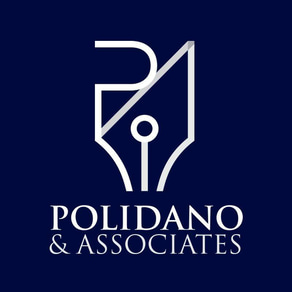An affidavit is a sworn declaration confirmed by oath or affirmation, signed in the presence of a Notary or Commissioner for Oaths.
Affidavits are used as evidence in legal proceedings, applications to government bodies or in business transactions.
It is a criminal offense to make false statements in an affidavit. Its sworn nature means that the affiant can be held legally responsible for any false statements, making it a reliable source of evidence and information.
Affidavit
Will and Succession
Wills
The Civil Code (Chapter 16 of the Laws of Malta) is in an instrument by which a person, known as the ‘testator’, disposes of his/her property for the time when he/she shall have ceased to live.
Wills can be either public or secret. Public wills are drawn up in front of a Notary Public and is registered with the Public Registry; whereas a secret will is drawn up by the testator himself and handed to a notary, who shall deposit the will in the Registry of the Court of Voluntary Jurisdiction.
Spouses may make a will either separately or jointly, (the latter known as ‘unica charts will’). Unica charta wills have two sections – one section each dealing with the wishes of each testator.
The Civil Code establishes that the testator must not be under any form of legal incapacity for the will to be valid and must:
(a) Have completed their sixteenth year of age;
(b) Be capable of understanding and volition, and capable of expressing their will;
(c) Not be interdicted on the ground of insanity or of mental disorder;
(d) Capable of managing their own affairs at the time of the will;(e) Not be interdicted on the ground of prodigality unless they have been authorized
(e) To dispose of their property by the court which had ordered their interdiction.
Inheritance
Inheritance or succession involves establishing legal guidelines for the smooth transfer of ownership and rights over specific property or valuable assets when someone passes away. This process ensures clarity, minimizes disputes, and upholds the wishes of the deceased while fairly addressing the claims of beneficiaries.
General Services
Private Writings
Private writings provide the means to oversee or terminate obligations, proving useful for agreements related to leases or promises of sale. This discreet method empowers individuals to navigate their commitments effectively.
Power of Attorney
A Power of Attorney, known in Maltese as “prokura” is a legal document in which one person (the principal) empowers another person (the attorney and/or the agent) to appear on their behalf in a variety of matters.
A Power of Attorney may be general, specific or enduring:
General Power of Attorney – This grants the attorney broad powers to manage all or most of the principal’s affairs;
Specific Power of Attorney – This grants the attorney the authority to act on behalf of the principal only in specific situations or with respect to specific tasks;
Enduring Power of Attorney - The main distinguishing feature of an Enduring. Power of Attorney is its ability to remain in effect even if the principal becomes mentally incapacitated.
The Principal can revoke a Power of Attorney at any time, provided that are mentally competent.
It is crucial for the principal to choose a trustworthy agent, as the agent will have significant legal power to act on their behalf. We assist individuals in drafting the most suitable Power of Attorney tailored to their specific needs by explaining the legal implications and help determine which type of Power of Attorney is the most appropriate for each situation.
Notarisation of Documents
Designed for your assurance, this service specializes in certifying document authenticity through notary procedures, ensuring credibility via witness validation and meticulous record authentication.
Affidavit
An affidavit is a sworn declaration confirmed by oath or affirmation, signed in the presence of a Notary or Commissioner for Oaths.
Affidavits are used as evidence in legal proceedings, applications to government bodies or in business transactions.
It is a criminal offense to make false statements in an affidavit. Its sworn nature means that the affiant can be held legally responsible for any false statements, making it a reliable source of evidence and information.
Matrimony
Matrimonial Regimes
In Malta, we have three basic matrimonial regimes:
Community of Acquests
This regime creates a shared pool of assets and liabities. Everything acquirred during the marriage (except for personal items such as gifts and inheritance) is owned jointly by both spouses. Both spouses share responsability for any debts or liabilities incurred during the marriage.
Separation of estates
Each spouse will have full ownership over their individual property, both acquired before and during marriage. Unless specifically agreed upon, there is not joint ownership of any property. Each spouse is responsible for their own debts and liabilities.
Community of residue under separation administration (CORSA)
The matrimonial regime a hybrid between the regimes of community of acquests and separation of estates. It allows for some joint ownership of property acquired during marriage whilst keeping other assets separate.
By default, marriages are regulated by the Community of Acquests regime under Maltese Law. A couple who chooses to have their marriage regulated with another matrimonial regime other than the Community of Acquests must enter into a pre- nuptial agreement before their marriage where they declare which matrimonial regime they would like to choose. If a couple decides to change their matrimonial marriage after they get married, they must do so by filing an application to the Registry of the Court of Voluntary Jurisdiction.

Useful links
Laws of Malta
http://www.justiceservices.gov.mt
Notarial College
http://www.notariesofmalta.org
Government of Malta
https://www.gov.mt
Commissioner for Revenue
https://cfr.gov.mt
Public Registry
https://identita.gov.mt/
Energy Performance Certificate Assessors https://epc.gov.mt/information-assessors
Land Registry Site Plans https://www.landregistryplans.gov.mt
Malta Financial Services Authority
https://www.mfsa.com.mt
Court Services
http://www.notariesofmalta.org
Malta Stock Exchange
https://www.borzamalta.com.mt
Lands Authority
https://landsauthority.org.mt
